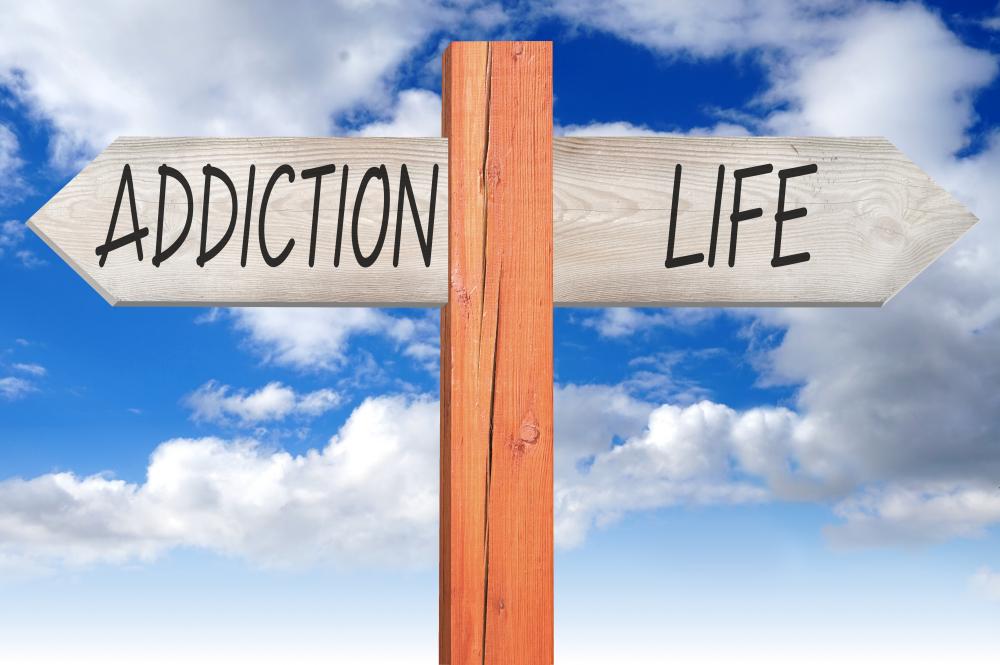Los Angeles Drug Rehab Center

Exploring the Unique Approach to Recovery at a Los Angeles Drug Rehab Center
When considering the vast expanse of the rehabilitation landscape in Los Angeles, it becomes clear that choosing the right Drug Rehab Center is critical for anyone seeking to overcome addiction and mental health challenges. The city’s unique blend of urban dynamics and cultural diversity offers a backdrop for innovative treatment solutions tailored to meet the myriad needs of its residents. Thrive Treatment makes it easy to find the right level of treatment for your recovery.
Dual Diagnosis Treatment: Bridging the Gap Between Mental Health and Addiction
Understanding the Interconnectedness
At the core of some of the most effective addiction treatment programs in Los Angeles is the recognition of the intertwining nature of substance use disorders and mental health conditions. A Los Angeles Drug Rehab Center that excels in dual-diagnosis treatment understands that addressing both areas simultaneously is essential for true healing and lasting recovery.
Personalized Treatment Plans
These centers often feature highly individualized treatment plans that consider the person’s unique history, substance use, and mental health challenges. By crafting an approach that is as unique as the individuals they serve, these facilities offer hope and healing to those who may have struggled to find success in more traditional one-size-fits-all programs.
The Integrated Care Model at a Los Angeles Drug Rehab Center
Innovative Los Angeles Drug Rehab Centers often employ an integrated care model, combining evidence-based practices with holistic approaches to treat the whole person rather than just the addiction or mental health condition in isolation. This model typically includes a blend of clinical therapies, peer support, and wellness activities, all designed to foster resilience, self-understanding, and a sense of community among participants.
Emphasizing the Therapeutic Relationship
One key aspect of this model is the importance placed on the therapeutic relationship. High-quality centers prioritize building strong, trusting relationships between clients and therapists, recognizing that this bond is often the foundation upon which recovery is built.
Specialized Programs Tailored for Unique Needs
- Programs for Teens and Young Adults: These programs focus on the specific challenges faced by younger individuals, incorporating family involvement and education components to support the broader environment affecting the client’s life.
- Gender-Specific Programs: Recognizing the different pathways to addiction and recovery for men and women, some centers provide programs tailored to meet these unique needs, offering a safe and understanding space for healing.
- Cultural and Spiritual Considerations: With Los Angeles’ diverse population, the best rehab centers include cultural competence and spirituality as part of their treatment approaches, recognizing their significant role in many individuals’ lives and recovery processes.
The Role of Family Involvement in Recovery
Enhancing the Treatment Process
Family involvement is often a key component of the recovery process at a Los Angeles Drug Rehab Center. Engaging families in therapy, educational sessions, and support groups can enhance the treatment process, offering a comprehensive approach that acknowledges the important role of the family dynamic in recovery.
Support Beyond Treatment
Beyond the immediate benefits during treatment, involving the family helps to build a solid support network for the individual post-treatment, vital for maintaining long-term sobriety and mental health.
Aftercare Planning: Securing Sustainable Recovery
Recovery doesn’t end upon leaving a rehab facility. The most successful Los Angeles Drug Rehab Centers place a strong emphasis on aftercare planning, ensuring that each individual has a robust support system and access to resources that facilitate continued growth and recovery in their everyday life.
Leveraging Community Support in Los Angeles
The large and diverse recovery community in Los Angeles provides a unique advantage for individuals seeking sobriety. Many rehab centers work to integrate clients into this broader community, recognizing the value of peer support and shared experiences in the recovery journey.
Embracing Innovation in Addiction Treatment
Los Angeles Drug Rehab Centers are often at the forefront of innovation in addiction treatment, incorporating the latest research findings, therapy modalities, and technological advancements into their programs. This commitment to innovation means clients receive the most effective and up-to-date care possible.
The Role of Dedicated Professional Teams
The efficacy of a Los Angeles Drug Rehab Center often rests on the shoulders of its dedicated professional teams. These multidisciplinary teams bring together clinicians, therapists, medical doctors, and support staff, all working in concert to provide comprehensive, compassionate care tailored to the individual’s needs.
Individuals in the throes of addiction or struggling with co-occurring mental health issues can find hope and healing at a Los Angeles Drug Rehab Center. With their innovative approaches, commitment to personalized care, and the supportive backdrop of the Los Angeles community, these centers offer a beacon of light for those seeking a path to recovery.

What Is Dual Diagnosis Treatment and How Does It Work?
Dual diagnosis treatment is a specialized approach that recognizes the complex interplay between substance use disorders and mental health issues. Imagine someone dealing with depression that turns to alcohol as a coping mechanism. Treating the alcohol addiction without addressing the underlying depression wouldn’t provide a lasting solution. That’s where dual diagnosis treatment comes in, offering a concurrent approach to address both the addiction and the mental health condition together.
This approach is grounded in the understanding that for many individuals, substance use and mental health issues are deeply intertwined. Personalized treatment plans are developed, taking into account each person’s unique history, the specific nature of their substance use, and their mental health challenges. This holistic approach aims to provide a more comprehensive and effective path to recovery, fostering an environment where healing on all fronts is possible.
Curiously enough, what specific therapies are applied in dual diagnosis treatment? Engaging with techniques like cognitive-behavioral therapy, medication-assisted treatment, and holistic therapies can offer a well-rounded approach to healing and recovery.
How Important Is Family Involvement in the Recovery Process?
Family involvement can often be a game-changer in the recovery process, serving as a vital source of support and understanding for individuals navigating the challenging path to sobriety. By engaging in therapy sessions, educational programs, and support groups, families can gain insights into the dynamics of addiction and mental health, enhancing their ability to provide meaningful assistance. Imagine a scenario where a family learns to communicate in a more supportive and less judgmental manner, creating a nurturing environment conducive to recovery for their loved one.
Moreover, this involvement doesn’t just benefit the individual in treatment; it’s a healing process for the family as well. Addiction and mental health issues can strain family dynamics, and through active participation in the recovery process, families can work through these challenges together. The solid support network established during treatment can be instrumental in navigating post-treatment life, significantly impacting long-term sobriety and mental health stability.
Wondering how you can support a loved one going through recovery? Engaging with the process and learning about the challenges they face can be a great starting point.
Why Is Community Support Essential in Addiction Recovery?
Community support plays a crucial role in the addiction recovery journey, providing a sense of belonging and understanding that can be incredibly empowering. Imagine walking into a room where everyone understands what you’re going through because they’ve been there themselves. This shared experience fosters a unique form of empathy and support, essential for individuals feeling isolated or misunderstood due to their addiction or mental health struggles.
Los Angeles, with its large and diverse recovery community, offers a wealth of support groups, recovery programs, and sober living communities where individuals can connect with others on similar paths. This collective support not only helps to reduce feelings of isolation but also provides valuable resources, coping strategies, and encouragement. The transition from treatment into everyday life can be daunting, but being part of a supportive community can make it significantly more manageable.
Have you tapped into your local recovery community yet? Finding support groups or community gatherings can be a powerful step towards lasting recovery.
How Is Innovation Shaping the Future of Addiction Treatment?
Los Angeles drug rehab centers are at the forefront of incorporating innovative approaches and technological advancements into addiction treatment. This commitment to innovation means exploring everything from cutting-edge therapy modalities to digital health tools that enhance treatment efficacy and accessibility. For instance, telehealth services have revolutionized access to care, allowing individuals to receive therapy and support from the comfort of their homes.
Furthermore, research into the neurobiological aspects of addiction is informing the development of new therapeutic approaches that target the brain’s role in substance use disorders. Also, there’s a growing recognition of the importance of personalized medicine in addiction treatment–acknowledging that what works for one person may not be as effective for another. This leads to the creation of tailored treatment plans that consider an individual’s genetic makeup, personal history, and specific challenges.
Given these advances, what does the future hold for addiction treatment? It’s a future that promises more accessible, effective, and personalized care for those seeking to overcome substance use and co-occurring mental health disorders.

